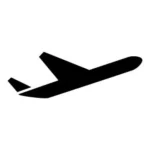Are you dreaming of soaring through the skies and experiencing the thrill of flying? Obtaining a pilot license is the first step towards fulfilling this aspiration. While the journey may seem daunting, with the right preparation and guidance, you can navigate it successfully. Here's a comprehensive guide to help you achieve your dream of becoming a pilot:
1. **Choose the Right Flight School:** The flight school you select will have a significant impact on your learning experience. Look for schools with experienced instructors, well-maintained aircraft, and a positive learning environment. Consider their location, cost, and availability of simulators.
2. **Set Realistic Goals:** Break down the process into smaller, achievable goals. This will keep you motivated and make the journey less overwhelming. Determine how much time you can dedicate to training and set a realistic timeline for completing your license.
3. **Study Ground School Theory:** Ground school provides the foundational knowledge required for safe flying. Study hard, and understand the concepts of aerodynamics, meteorology, navigation, and aircraft systems. Attend classes regularly, ask questions, and seek additional resources to supplement your learning.
4. **Practice Flight Time:** Flight time is essential for developing your piloting skills. Plan regular flight lessons with your instructor. During these lessons, focus on mastering basic maneuvers, instrument flying, and emergency procedures. Be patient and persistent, as proficiency takes time and practice.
5. **Prepare for the Written Exam:** The written exam tests your knowledge of aviation regulations, weather, and aircraft systems. Study diligently and use practice tests to gauge your progress. Familiarize yourself with the exam format and time limits.
6. **Pass the Practical Test:** The practical test is your chance to demonstrate your flying abilities to an FAA examiner. Be well-rested and confident. Follow your instructor's guidance and execute the maneuvers smoothly. Stay calm, focus on safety, and communicate effectively with the examiner.
7. **Maintain Currency and Proficiency:** Once you obtain your pilot license, it's crucial to maintain your currency and proficiency. Fly regularly, log your flight hours, and participate in recurrent training. This ensures that your skills remain sharp and that you are always up-to-date with aviation regulations.
